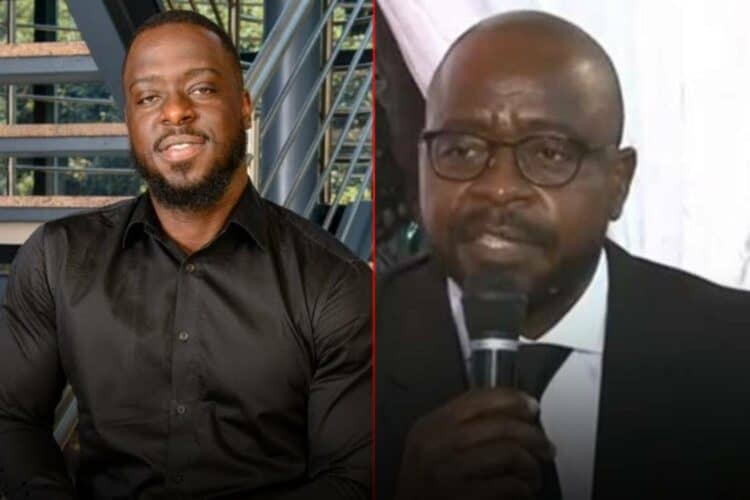President Cyril Ramaphosa has unleashed his corruption watchdogs, the Special Investigating Unit (SIU), after several bigwigs at the Passenger Rail Agency of South Africa (PRASA) linked to the infamous ‘tall trains’ scandal involving Nsovo Mashaba‘s father, Auswell.
SIU launches investigation into PRASA’s ‘tall trains’ scandal
On Monday, the specialised white-collar crimebusters released a statement, confirming the president signed “two proclamations authorising the Special Investigating Unit (SIU) to investigate allegations of serious maladministration in the affairs of Department of Home Affairs and Passenger Rail Agency of South Africa (PRASA), and improper or unlawful conduct by officials or employees
of the State entities, and to recover any financial losses suffered by the State.”
One of the cases the SIU has been tasked with relates to “the affairs of PRASA concerning the award of tenders for the supply of various train locomotives to Swifambo Rail Leasing Pty Ltd and the supply and maintenance of an integrated security access management system at various train stations to Siyangena Technologies Pty Ltd.”
The scandal involving Swifambo Rail Leasing and the Passenger Rail Agency of South Africa (PRASA) centres on a contract awarded to Swifambo in 2013 to supply locomotives to PRASA.
The contract, worth R3.5 billion, became infamous due to major irregularities and corruption allegations.
Swifambo Rail Leasing, despite being a newly established company with no experience in the railway industry and lacking a tax clearance certificate, BBBEE plan, and compliance with local content requirements, was chosen as the preferred bidder.
The locomotives supplied were manufactured in Spain and were found to be too tall for South Africa’s railway infrastructure, rendering them unsafe and unusable on South African tracks.
This resulted in a significant waste of public funds, approximately R2.7 billion, with only a fraction of the locomotives ever arriving in South Africa.
The scandal exposed the manipulation of tender and procurement processes and highlighted the involvement of political connections in facilitating the deal.
How Nsovo Mashaba’s father, Auswell, bagged billions in taxpayers’ money
Auswell Mashaba, the director of Swifambo and father of popular socialite Nsovo Mashaba, admitted to making payments to political affiliates and was found to have illicitly expended the money, with significant amounts going towards personal gains and political contributions.
Investigations by the Hawks and the SIU implicated 44 PRASA officials in the corrupt tender, leading to resignations and suspensions.
The Supreme Court of Appeal (SCA) found the tender was procured through corruption, tailored to benefit Vossloh (Swifambo’s front company), thus highlighting systemic failures and corruption within PRASA and its dealings.
This case has been a pivotal example of state capture and corruption within South Africa’s public transportation sector.
Other cases the SIU has been tasked with investigating include:
- serious maladministration in the affairs of PRASA relating to fraudulent liability claims processed and paid by PRASA’s Group Insurance Department, including claims paid as one-time vendor payments;
- serious maladministration in connection with the affairs of Home Affairs relating to the issuance of—permanent residence permits; corporate visas; business visas; critical/exceptional skills work visas; study visas; retired persons’ visas; work visas; and citizenship
by naturalisation, contrary to the Immigration Act, 2002; the South African Citizenship Act, 1995; manuals, guidelines, circulars, practice notes or instructions applicable to Home Affairs; or manuals, policies, procedures, prescripts, instructions or practices of or applicable to the Department. - improper or unlawful conduct by officials or employees of Home Affairs in relation to the installation of T200 firewalls.
- irregular, unlawful or improper conduct by officials or employees of Home Affairs or any other person or entity, in relation to the allegations being investigated.
- the employment of ghost employees identified by PRASA’s Project Zivese in August 2021; and
- allegations of unlawful and improper conduct that took place between 1 January 2010 and 16 February 2024, the date of the publication of the Proclamation or before 1 January 2010 and after the date of the Proclamation that are relevant to, connected with, incidental to the matters or involves the same persons, entities or contracts investigated;






